About Stonington Institute Groton
Stonington Institute provides substance addiction and mental health services for adults. Their Trails Corner Recovery Center is located out in Groton, Connecticut. Their goal is to motivate guests to become sober through education, intervention, and social rehabilitation. They have specialized programs for military personnel.
The Trails Corner Recovery Center is an outpatient program that emphasizes sober living, but if you need more acute care, they can refer you to their inpatient facility in Stonington.
There are outpatient programs for those needing more flexibility. Along with traditional therapies, they incorporate holistic methods, like art therapy, martial arts, music therapy, and yoga. These techniques can help with self-expression and stress reduction and promote relaxation. You won’t find shortages of places to exercise or find a peaceful place for a yoga session. Bluff Point State Park and the Avery Point Lighthouse are among the many places that offer outdoor views and places for movement.
The Trails Corner Recovery Program offers medication-assisted treatment (MAT), using medicines like Suboxone and Vivitrol, to reduce cravings and help alleviate withdrawal symptoms. Guests may commute or live at the Inn while in treatment. The Inn is a dorm-style facility for men and women. You’ll have amenities like professionally prepared meals, laundry services, a basketball and volleyball court, a recreation room, and onsite AA meetings. Guests who attend the sober living program must take random drug tests.
The Starlight Program helps veterans and military members with the unique challenges they face when dealing with substance abuse. This service provides a 28-day, co-occurring program in a stigma-free setting where guests are treated with compassion and respect.
As of this writing, the program costs $50 per week, and they offer a sliding scale based on payment ability. They accept many insurance plans, private pay, and TRICARE. They do not accept Medicare.
Addiction Treatment Programs
Alcohol Rehab
Alcohol rehab in Connecticut helps clients find the motivation to make a change and gives them the tools to achieve long-term sobriety. In an alcohol program, you’ll not only receive treatment, but you’ll participate in activities, receive peer support, and learn how to have fun without alcohol.
Dual Diagnosis
People with a dual diagnosis may be using substances to self-medicate. A high-quality rehab in Connecticut can address both issues and help you reach recovery. In dual diagnosis programs, the activities, peer support, and counseling are tailored to the unique needs of those with mental health concerns. This may include additional therapy, medication, or peer support.
Opioid Addiction
A treatment program in Connecticut can give you the tools and skills you need to overcome opioid addiction and reclaim your life. Common services include counseling and classes on coping skills, emotional management, communication, and other key life skills. Opioid rehab programs can provide inpatient or outpatient treatment.
Adult Program
Adult programs in Connecticut address a wide range of substance use issues while also helping clients with concerns such as raising children or building a career. In an adult program, the activities, peer support, and counseling are tailored to the unique needs of this age group. This may include talking about how to build a career, raise a family, and handle the many responsibilities of independent living.
Military Rehab
Finding a military rehab in Connecticut can make all the difference in helping you overcome substance use if you’re a veteran or service member. In a military program, the activities, peer support, and counseling are tailored to the unique needs of service members and veterans. This may include trauma-informed care, treatment for PTSD, stress management, and more.
Men's Rehab
A men’s rehab in Connecticut addresses the unique needs men have and allows them to build relationships in a gender-specific environment. In a men’s program, the activities, peer support, and counseling are tailored to the unique needs of men. This may include talking about career development, fatherhood, communication strategies, and more.
Women's Rehab
Those who join a women’s rehab program in Connecticut are given training in key life skills to help them address their unique challenges. In a women’s program, the activities, peer support, and counseling are tailored to the unique needs women have. This may include talking about building a career, motherhood, relationship safety, and more.
Young Adult Rehab
When people join a young adult rehab in Connecticut, they learn key life skills while receiving treatment. In a young adult program, the activities, peer support, and counseling are tailored to the unique needs of this age group. This may include talking about how to start a career, have a family, and live independently.
Insurance Coverage
Medicaid
When looking for ways to pay for rehab in Connecticut, consider Medicaid if you are struggling to afford treatment. Programs that accept Medicaid can offer any level of care, including detox, inpatient, and outpatient. Your out-of-pocket costs, if any, are likely to be very low.
Private insurance
Using private insurance is a great way to pay for rehab in Connecticut. Depending on your insurance plan, it may cover some or all of the costs of treatment. Check on details such as how much your deductible and copayments are, as well as which treatment centers are in your plan’s network.
Self-pay options
Paying out of pocket for addiction treatment in Connecticut is known as self-pay. You can get a medical loan, electronically send payment to the center, or even write a check. Talk to the rehab center about the fee structure, which may depend on the level of care.
Military insurance
For those who qualify, military insurance is a good way to pay for substance use treatment in Connecticut. Plans vary, so be sure to contact your insurer for details. You may have out-of-pocket costs such as deductibles and copays.
Financial aid
When looking for ways to pay for rehab in Connecticut, consider asking about financial aid programs. Finding aid programs takes some research. Look for community groups or nonprofits in your area that may offer assistance, or ask individual treatment centers if they offer scholarships and grants.
Levels of Care
- 1
Detox Treatment
Alcohol and drug rehab in Connecticut generally starts with detox, which lets you start fresh on building a new life. Detox gets you ready to start building new habits, creating healthy relationships, and learn healthy coping strategies and other essential life skills.
- 2
Inpatient Rehab
Inpatient treatment in Connecticut is led by professionals who help you build new habits and skills to live a substance-free life. Inpatient care doesn’t just involve therapy, you also enjoy activities and outings, and many programs have holistic treatment like yoga, mindfulness, and more.
- 3
Outpatient Rehab
If you’ve recently finished a residential treatment program, participating in outpatient treatment in Connecticut can help you reinforce and practice your new habits. During outpatient treatment, clients have independence outside of sessions, allowing them to work, attend school, and practice their new habits in real-world situations.
- 4
Aftercare Support
In Connecticut, aftercare allows you to access additional resources and support to help you avoid relapse after treatment. A strong aftercare program can include ongoing counseling, education and employment support, housing services, and connections to community resources.
- 5
Sober Living Homes
Even after you finish treatment, recovery is a challenge. Sober living in Connecticut can give you a safe place to live and connect you to the support you need. Sober living is only one part of long-term recovery. You may also want to connect with ongoing counseling, 12-step or other support groups, education and employment support, and community resources.
- 6
Partial Hospitalization Program
For those who need intensive care but can live independently, partial hospitalization programs (PHPs) in Connecticut can be a useful form of rehab. PHPs include multiple approaches, including cognitive behavioral therapy (CBT), motivational interviewing (MI), and holistic therapy options.
Therapies
Cognitive Behavior Therapy
Cognitive behavioral therapy in Connecticut involves being aware of how your thoughts are connected to your feelings and behavior. CBT can help you identify and challenge maladaptive thoughts, calm your mind, and face your fears rationally.
Creative Arts Therapy
Receiving creative arts therapy in Connecticut helps you express deep-rooted emotions, process trauma, and learn how to create a better life for yourself. Creative arts therapy can help you express emotions that are hard to talk about, helping you understand the experiences that shape your life so you can build new, positive habits.
Family Therapy
Many people have challenging family backgrounds, and addiction can create unhealthy dynamics as well. Family therapy in Connecticut allows you to address these concerns. Family therapy is a common part of both inpatient and outpatient substance use treatment and may be used to help address trauma, build better relationships, and help loved ones become part of your support network.
Group Therapy
It’s easy to feel isolated when you battle addiction, but group therapy in Connecticut can show you you’re not alone. In rehab, group therapy is only one of the elements of treatment, along with activities, peer support, individual counseling, relapse prevention, and more. Together, all these methods support you in establishing long-term recovery.
Individual Therapy
Individual therapy in Connecticut can provide professional support and accountability as you work through substance use treatment. Substance use treatment includes detox, inpatient treatment, and outpatient care, and individual therapy may be a part of each of these stages. The goal is to help clients address the roots of addiction, develop motivation to change, and create new habits for a substance-free life.
Rational Behavioral Therapy
If you’re struggling with substance use in Connecticut, you may not realize how connected your beliefs and actions are. Rational behavior therapy can help increase your awareness. RBT can help you identify and challenge maladaptive beliefs, reframe them, and face triggering events rationally.
Trauma Therapy
Trauma is an emotional response to a terrible event, and some people use substances to numb those emotions. Trauma-informed therapy in Connecticut can help you address what happened and consciously create a healthier response. Substance use and trauma are interrelated, and trauma-informed therapy involves working with the therapist and your support network to create healthy coping skills, become empowered, and improve resilience.
Accreditations
Location
Contact Stonington Institute Groton
Top Drug Rehab Centers in Connecticut
-
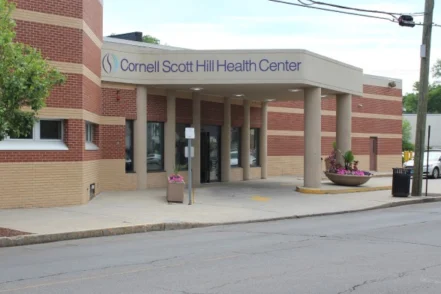 Connecticut
ConnecticutCornell Scott Hill Health Center 400 Columbus Avenue
400 Columbus Avenue New Haven, Connecticut 06519
-
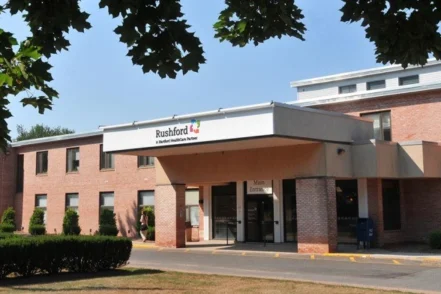 Connecticut
ConnecticutRushford Center Meriden
883 Paddock Avenue Meriden, Connecticut 06450
-
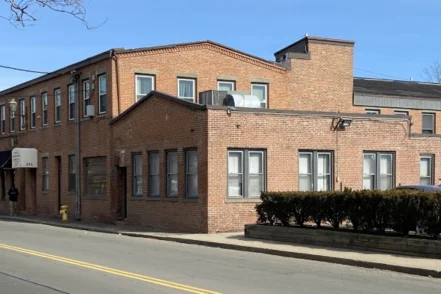 Connecticut
ConnecticutNew Era Rehabilitation Center New Haven
311 East Street New Haven, Connecticut 06511
-
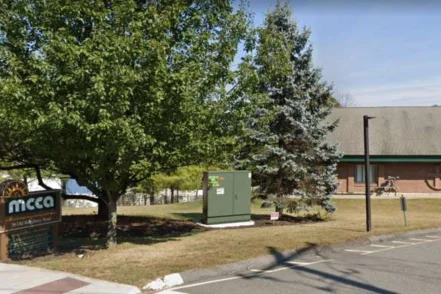 Connecticut
ConnecticutMCCA Midwestern Connecticut Council on Alcoholism McDonough House
38 Old Ridgebury Road Danbury, Connecticut 06810
-
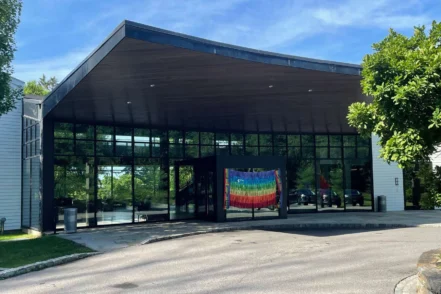 Connecticut
ConnecticutMountainside Treatment Center Canaan
187 South Canaan Road Canaan, Connecticut 06018
-
 Connecticut
ConnecticutSilver Hill Hospital
208 Valley Road New Canaan, Connecticut 06840
-
 Connecticut
ConnecticutMCCA Midwestern Connecticut Council on Alcoholism Waterbury
Murray Street 34 Waterbury, Connecticut 06710
-
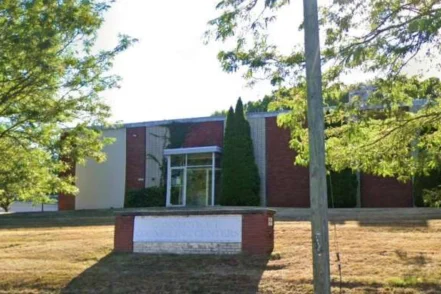 Connecticut
ConnecticutConnecticut Counseling Centers Inc
60 Beaver Brook Road Danbury, Connecticut 06810
-
 Connecticut
ConnecticutAware Recovery Care North Haven
556 Washington Ave, Unit 201 North Haven, Connecticut 06473
-
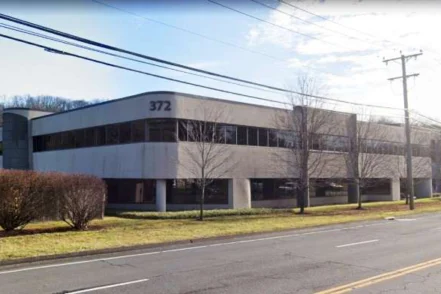 Connecticut
ConnecticutMountainside Wilton
372 Danbury Road Wilton, Connecticut 06897
